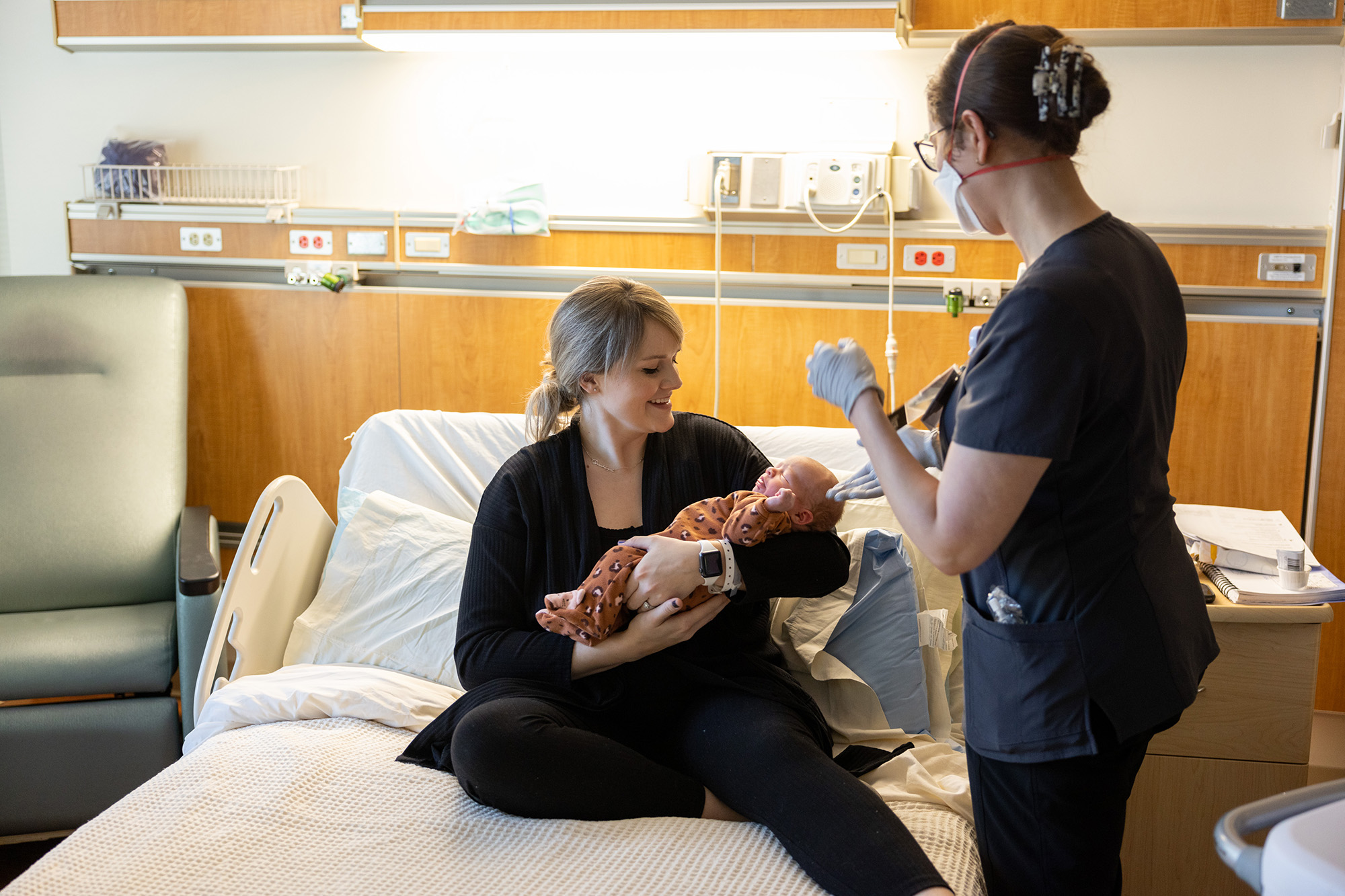Providing Iowans with quality maternity care

University of Iowa Health Care Medical Center once again has been named one of the nation’s top hospitals for maternity care by U.S. News & World Report.
The medical center on the university campus is once again listed as a 2025 High Performing hospital for Maternity Care. This is the highest award a hospital can earn as part of U.S. News’ Best Hospitals for Maternity Care annual study. U.S. News evaluated 817 hospitals from across the United States. Only half of all hospitals evaluated for the 2025 ratings edition have been recognized as Best Hospitals for Maternity Care.
“I’m extremely proud of our team continuing to earn national recognition at a time when more babies are being born at our hospitals than ever before,” says Christian Pettker, MD, department executive officer and the Jennifer R. Niebyl Chair in Obstetrics and Gynecology. “Not only are we looking to expand maternal health services at our campuses to ensure we’re here for those who need us, but we’re also providing outreach support in rural communities. We’re educating and supporting emergency care teams and frontline providers around the state to bolster their obstetric skills.”
When you choose UI Health Care Medical Center for the birth of your baby, your family is in the best hands. Our team is dedicated to providing the highest quality care, with the best outcomes.
Areas of care
UI Health Care Medical Center earned a High Performing designation in recognition of maternity care as measured by factors such as severe unexpected newborn complication rates, birthing-friendly practices and transparency on racial/ethnic disparities, among other measures.
“The hospitals recognized by U.S. News as Best Hospitals for Maternity Care showcase exceptional care for expectant parents,” said Jennifer Winston, Ph.D., health data scientist at U.S. News. “These hospitals demonstrate significantly lower C-section rates and severe unexpected newborn complications compared to hospitals not recognized by U.S. News.”
U.S. News began evaluating maternity care hospitals in 2021, rating hospitals that provide labor and delivery services and submit detailed data to the publication for analysis. Best Hospitals for Maternity Care assist expectant parents, in consultation with their prenatal care team, in making informed decisions about where to receive maternity services that best meets their family’s needs.
The U.S. News Best Hospitals for Maternity Care methodology is based entirely on objective measures of quality, such as C-section rates in lower-risk pregnancies, severe unexpected newborn complication rates, exclusive breast milk feeding rates, birthing-friendly practices and reporting on racial/ethnic disparities, among other measures.
To accommodate the state’s growing need for maternal care and specialized newborn care, UI Health Care has multiple projects underway to expand facilities for both its neonatal care and maternal health services.
For more information and to view the full list, visit Best Hospitals for Maternity Care.


